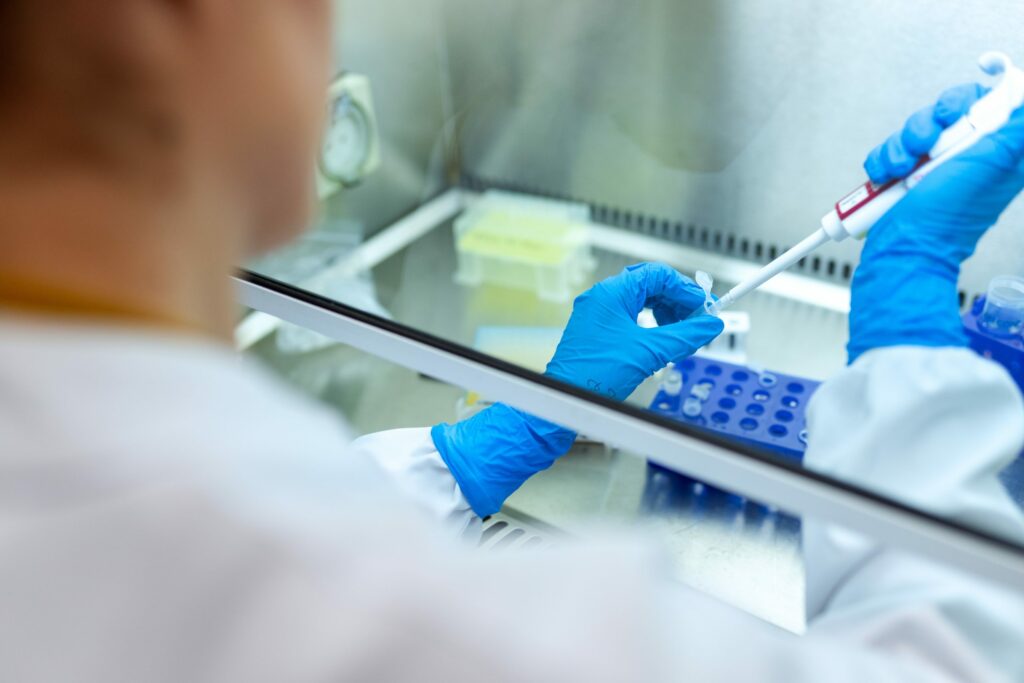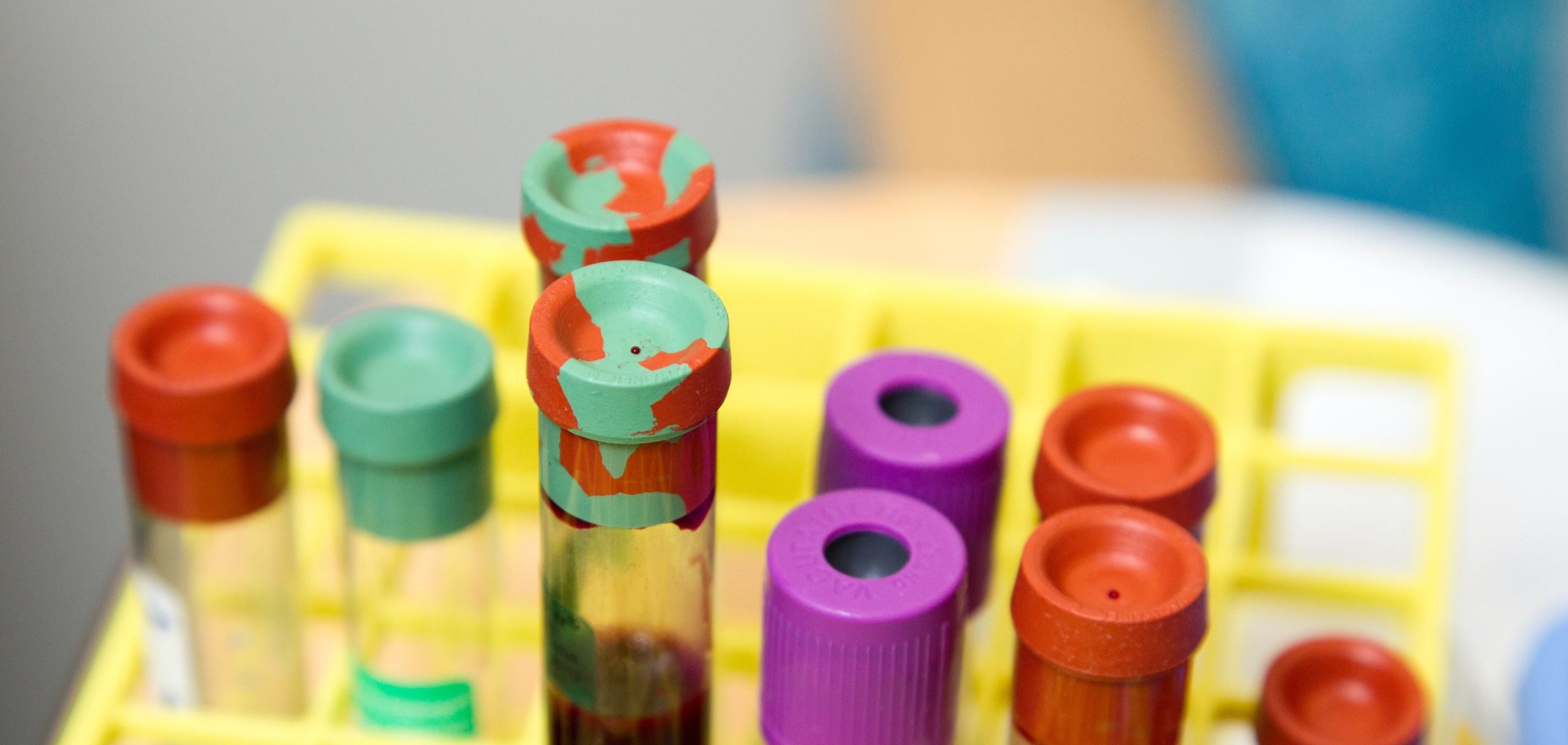Blood analysis: an important health tool
Odemshop
AuthorPrecious elixir of life: blood is considered a mirror of health and well-being. As a standard repertoire of medical diagnostics, blood analysis provides information about a wide variety of diseases and deficiency symptoms and thus serves to monitor health. In this article, you will learn why a regular blood test is valid, how it works, […]

Precious elixir of life: blood is considered a mirror of health and well-being. As a standard repertoire of medical diagnostics, blood analysis provides information about a wide variety of diseases and deficiency symptoms and thus serves to monitor health.
In this article, you will learn why a regular blood test is valid, how it works, and what costs can be expected.
Why is blood helpful in analysis?
Regular monitoring of blood values is a critical component of health and well-being. Every illness and every deficiency leaves its mark on the blood – and often before symptoms arise. For this reason, a blood test is recommended for adults aged 35 every two to three years – for example, as part of a regular preventive medical checkup. In addition, various manufacturers offer blood tests for home use, with which several blood parameters can be determined independently of a doctor.

In addition to screening, blood analysis is also useful in the following cases:
- in case of suspicion of certain diseases
- If deficiencies are suspected (e.g., nutrient or vitamin deficiencies).
- to clarify non-specific symptoms (exhaustion, chronic fatigue, overweight or underweight, hair loss, skin problems as well as persistent inflammations)
- for monitoring the course of certain diseases
- during increased athletic or mental activity (performance enhancement)
- During pregnancy
Instead of indiscriminately resorting to dietary supplements, a well-founded blood analysis should be carried out first. This is the only way to detect any deficiencies and then intervene in the right place.
How does a blood analysis work?
Several points must be clarified for blood analysis to provide the desired information. Above all, it is essential to know whether the blood test will be performed by a doctor or by self-testing at home and which blood values are to be checked.
Determination of the blood values
Blood parameters should be determined depending on the doctor’s recommendations and individual health goals. Suppose you are healthy and want to improve your concentration or athletic performance, for example, or check the status of individual nutrients such as amino acids, vitamins, or minerals. In that case, blood tests are worthwhile at home. With them, you can detect numerous health parameters as often as you like.

No appointments or routes are necessary for this. The costs for this are also justifiable because the patient must pay for parameters outside the routine laboratory or without indication.
Collection of the blood
Blood is collected in different tubes during a medical laboratory check, mainly from the vein. One must be fasting for specific values such as fats or blood sugar, as meals influence these. Subsequently, the sample evaluation takes place in a certified laboratory.
In the home blood test, one takes the blood sample privately individually. The test kits contain all the necessary utensils. After a lancet prick, a few drops of capillary blood are collected from the fingertip in a blood collection tube or with a test stick. The sample is then sent in.
Laboratory analysis
Whether a doctor-ordered blood count or home test was performed, the blood sample goes through the following analysis step by trained personnel in a certified laboratory. Only certified laboratories meet all quality requirements, so the test result has the corresponding significance.
It is also essential to choose only certified manufacturers for home self-tests. We have listed a few of these providers here.
What values are measured during blood analysis?
A blood analysis determines a wide variety of values (1). During routine medical check-ups, a blood count (small or large) is usually performed, and additional parameters are also measured as required. Here is an overview of frequently analyzed blood values:
- Small and large blood count
- Blood sugar and blood lipids
- Inflammation levels
- Thyroid levels
- Liver values
- Kidney values
- Blood gases
- Coagulation factors
- Tumor marker
- Enzymes & Hormones
- Antibody
- Vitamine
- Minerals or blood salts
- Amino acids
With home blood tests, you independently set your desired parameters depending on your health goals. You can read more information about the meaning of individual blood values in our blog about blood values.

What does the result of a blood analysis tell?
The laboratory results of a medical check-up are usually available after a few working days and are explained in a discussion. The parameters recorded are provided together with the reference range. The values of 95% of all healthy persons lie within this statistical range.
Bei der Blutanalyse für zu Hause sind die Testergebnisse nach einigen Tagen online erhältlich. Ein simples Ampelsystem zeigt, welche Parameter vom Normalwert abweichen und wo Handlungsbedarf besteht. Zudem sind in den Testergebnissen häufig praktische Empfehlungen zu Ernährung, Stressmanagement, Bewegung und Nahrungsergänzung inkludiert, um die gesetzten Gesundheitsziele nachhaltig zu erreichen.
Wenn die Werte abweichen
Nicht jede kleine Abweichung bedeutet ein gesundheitliches Problem. Daher ist eine gelegentliche Verlaufskontrolle wichtig. Zudem können folgende Faktoren die Blutwerte beeinflussen (1, 2):
- leichte Infekte
- Medikamente
- starke Menstruation
- Stress
- starke körperliche Belastung vor Blutabnahme
- Alkohol- oder Tabakkonsum
- Fehler bei Probenaufbewahrung oder -transport
Manche Blutwerte müssen überdies an bestimmten Tageszeiten bestimmt werden, um die entsprechende Aussagekraft zu haben.
Was kostet ein Bluttest?
Wie viel ein Bluttest kostet, ist unterschiedlich. Die Kosten für ein kleines bzw. großes Blutbild übernehmen meist die Krankenkassen – vorausgesetzt, es wurde ärztlich angeordnet (3, 4). Besteht kein konkreter Krankheitsverdacht, zählt ein Bluttest zu den individuellen Gesundheitsleistungen (IGeL) und die Kosten sind selbst zu tragen (5).
Auch Private Krankenkassen übernehmen die Kosten für ein Blutbild bei medizinischer Indikation. Bluttests ohne medizinische Notwendigkeit (z. B. Aminosäuren, Vitamine oder Mineralstoffe) sind jedoch nur in Eigenleistung möglich.
Lediglich in konkreten Verdachtsfällen oder bei Risikopatienten erfolgt eine Kostenübernahme durch die Kassen. Das heißt, dass beschwerdefreie Personen die Kosten für einige Blutwerte selbst tragen müssen.
Wie setzen sich die Kosten einer Blutanalyse zusammen?
Die Kosten für Laborbestimmungen (Blutwerte, Zusatzbestimmungen etc.) sind in der Gebührenordnung für Ärzte (GOÄ) geregelt und können differieren. Je nachdem, welche Parameter in welchem Medium (Vollblut, Serum etc.) untersucht werden und wie umfangreich die Untersuchung ist (Stichwort: Satz), gibt es hier sogar wesentliche Unterschiede (6, 7).
Die folgende Tabelle zeigt einige Positionen:
| Gruppe | Parameter | Regelsätze lt. GOÄ (€) |
|---|---|---|
| Mineralstoffe | Cobalt | 60,33 |
| Eisen | 2,68 | |
| Kalzium | 2,68 | |
| Jod | 60,33 | |
| Kupfer | 2,68 | |
| Magnesium | 2,68 | |
| Selen | 27,48 | |
| Zink | 6,04 | |
| Vitamine | Vitamin A | 24,13 |
| Vitamin B1 | 38,2 | |
| Vitamin B2 | 38,2 | |
| Vitamin B6 | 38,2 | |
| Vitamin B9 (Folsäure) | 16,76 | |
| Vitamin B12 | 16,76 | |
| (aktiviertes) Vitamin D (25-Hydroxy-Vitamin D3) | 32,18–50,28* | |
| Vitamin E | 24,13 | |
| Vitamin K | 38,2 | |
| Kohlenhydrat- und Fettstoffwechsel | Fettsäureprofil der Erythrozytenmembran | 60,33 |
| Omega-3-Index | 27,49 | |
| HDL oder LDL | 2,68 | |
| HbA1c | 13,41 | |
| Eiweiße | Ferritin | 16,76 |
| Aminosäuren | 38,2 | |
| Enzyme, Hormone | Coenzym Q | 20,98 |
| Cortisol | 16,76 | |
| Diaminoxidase | 32,18 | |
| Glutathion-Peroxidase | 17,49 |
Auch Leistungen wie Entnahme sowie Auswertung einer Blutprobe sind Verrechnungspositionen:
| Dienstleistung | Regelsätze lt. GOÄ (€) |
|---|---|
| Blutentnahme | 4,19 |
| Befundbesprechung kurz (< 10 Minuten) | 10,72 |
| Befundbesprechung lang (> 10 Minuten) | 20,1 |
Möchte man mehrere Werte bestimmen, die unter IGeL fallen, stehen mitunter auch bei ärztlich angeordneten Kontrollen beträchtliche Kosten an.
Blutanalyse für zu Hause: individuell, unkompliziert und zeitsparend
Die ärztliche Routinekontrolle bzw. jährliche Vorsorgeuntersuchung beim Hausarzt ist eine empfehlenswerte Gesundheitsprophylaxe. Möchte man mehr wissen und dabei Wege und Zeit sparen, stehen Bluttests für zu Hause zur Verfügung.
Damit überprüft man Vitalstoffe, Enzyme oder bestimmte Hormone wann und sooft man möchte und bevor Mangelerscheinungen und Symptome entstehen. Die ideale Einstellung einzelner Blutwerte sorgt für ein verbessertes Wohlbefinden und eine erhöhte Leistungsfähigkeit.
Alternativ zu Einzelbluttests lassen sich spezifische Gesundheitsbereiche (z. B. Fitness, Übergewicht, Allergien) austesten. Unter anderem sorgen die folgenden Kombinationskits für ein umfassendes Gesamtbild:
- Health & Fitnesstest (Lykon) (7 bis 18 Blutwerte)
- Kombi-Paket Herzgesundheit (cerascreen®) (3 Blutwerte)
- Food Allergies Test (Lykon) (16 Blutwerte)
- Große Vitamin- und Mineralstoffanalyse (cerascreen®) (10 Blutwerte)
- Immunsystem Test (for you) (15 Blutwerte)
Fazit
Regelmäßige Blutanalysen beugen Krankheiten und Mängeln vor. Neben kleinem oder großem Blutbild gehören – vor allem bei Krankheitsverdacht – auch Fette, Hormone, Entzündungs- oder Tumormarker zur ärztlichen Routinekontrolle.
Der Check auf Vitamine, Aminosäuren, Mineralstoffe, Hormone und Enzyme ist beim Arzt oft als IGeL selbst zu bezahlen. Mit Bluttests für zu Hause klärt man seine Wunschparameter ab, bevor Symptome entstehen – wann und sooft man möchte.
FAQ
Wo kann man eine Blutanalyse durchführen lassen?
Eine Blutanalyse erfolgt meist im Zuge der Vorsorgeuntersuchung beim Arzt. Viele Positionen sind aber keine Kassenleistung und selbst zu bezahlen. Unabhängig davon kann man viele Werte daher auch mit Bluttests für zu Hause kontrollieren.
Ist jede Blutanalyse eine Kassenleistung?
Kosten für die Blutanalyse übernehmen die Kassen nur bei ärztlicher Anordnung und Indikationsstellung (es muss nötig sein). Für Blutparameter, die außerhalb dieser Range liegen, kommt der Patient meist selbst auf.
Wie wird eine Blutanalyse durchgeführt?
Nach Festlegen der Parameter erfolgt eine Blutabnahme. Das kann beim Arzt, im Labor oder im privaten Bereich sein. Der Auswertung im zertifizierten Labor folgt ein ärztliches Befundgespräch. Bei Selbsttests erhält man Resultate samt Interpretation und Empfehlung häufig online.
Kann man einen Bluttest zu Hause durchführen?
Ja, neben ärztlichen Blutabnahmen gibt es auch Bluttests für zu Hause. Bei den online bestellbaren Tests entnimmt man ein paar Tropfen Blut aus der Fingerkuppe und schickt die Probe ein. Nach einigen Tagen ist das Testergebnis abrufbar.



